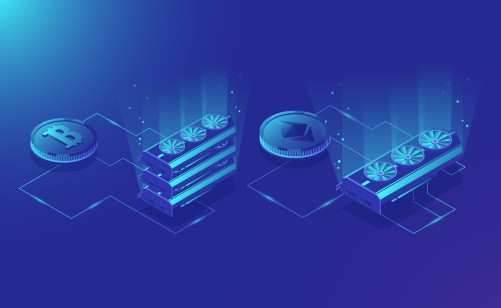-
In the ever-evolving landscape of decentralized finance (DeFi), one term that has gained significant traction and attention is "liquidity mining." This innovative concept has disrupted traditional finance systems, creating new opportunities for investors and reshaping the way we think about assets and their utility. In this article, we'll understand more about liquidity mining, its working, its importance in DeFi development services, and more.
Understanding Liquidity Mining
Liquidity mining, often referred to as yield farming, is a DeFi strategy that allows users to earn rewards by providing liquidity to decentralized exchanges (DEXs) or lending platforms. It essentially involves locking up your assets in a liquidity pool in exchange for rewards in the form of interest, fees, or governance tokens.
Suggested Post | An Explainer to Liquidity Staking Solution
To grasp the concept better, let's break down the key components:
Liquidity Pools
Liquidity pools are smart contracts that contain a pair of tokens, typically one stablecoin (e.g., DAI, USDC) and one volatile asset (e.g., ETH, BTC). These pools facilitate trading by ensuring sufficient liquidity is always available for users.
Yield Farming
Yield farming is participating in liquidity provision by adding your assets to these pools. In return, you receive tokens representing your share of the pool's assets, which can be traded or staked to generate additional returns.
Rewards
Liquidity providers receive rewards in various forms, such as transaction fees, interest, or governance tokens. The latter allows them to participate in the decision-making process of the DeFi protocol.
Check It Out | Emerging DeFi Trends in 2023: Shaping the Future of Fintech
The Rise of Liquidity Mining
Now that we have a basic understanding of liquidity mining, let's explore why it has gained such immense popularity:
Attractive Returns
Liquidity mining offers significantly higher returns compared to traditional savings accounts or even some investment vehicles. With annual percentage yields (APYs) sometimes reaching triple digits, it's no wonder investors are flocking to DeFi platforms.
Governance and Participation
Many DeFi projects grant governance tokens to liquidity providers. These tokens entitle holders to vote on proposals and decisions, giving them a say in the platform's future. This model aligns the interests of users and developers, fostering a more decentralized and community-driven ecosystem.
Liquidity Provision
By providing liquidity to DEXs, liquidity providers play a crucial role in the DeFi space. They enhance the efficiency of trading and ensure that users can swap assets without significant price slippage, thereby attracting more participants to the ecosystem.
Democratization of Finance
DeFi has democratized finance by allowing anyone with an internet connection to participate in the global economy. Liquidity mining further democratizes financial markets by enabling users to earn rewards, irrespective of their initial capital.
Also, Discover | Initial Liquidity Offering | A New Model for Raising Capital
Use Cases and Examples
Here are the use cases and examples of platforms offering liquidity mining:
Uniswap
Uniswap is one of the most well-known decentralized exchanges that employs liquidity mining. Users can provide liquidity to various token pairs, earning a share of the trading fees generated on the platform.
Yearn Finance
Yearn Finance is a yield aggregator that automatically reallocates users' assets to the highest-yielding DeFi protocols. YFI tokens, the platform's governance tokens, are distributed to liquidity providers as rewards.
Compound
Compound is a lending platform that incentivizes users to supply assets by offering them COMP tokens as rewards. These tokens can be used for governance or sold on the open market.
Explore More | Developing a Decentralized Crypto Exchange like Uniswap
Wrapping Up
Liquidity mining has revolutionized the DeFi space by offering investors attractive returns, democratizing finance, and fostering community participation. Businesses can integrate liquidity mining in their DeFi projects.
However, this concept involves creating and managing smart contracts, setting up reward distribution mechanisms, ensuring security, and integrating with various blockchain protocols and decentralized exchanges. A blockchain development service provider, like Oodles, can offer the technical knowledge and experience needed to design, develop, and deploy the necessary infrastructure for liquidity mining, making the process more efficient and secure for DeFi projects. Connect with our blockchain developers to start the process.

Our Offices
INDIA
Emaar Digital Greens, Sector 61,
Gurugram, Haryana
122011.
Welldone Tech Park,
Sector 48, Sohna road,
Gurugram, Haryana
122018.













